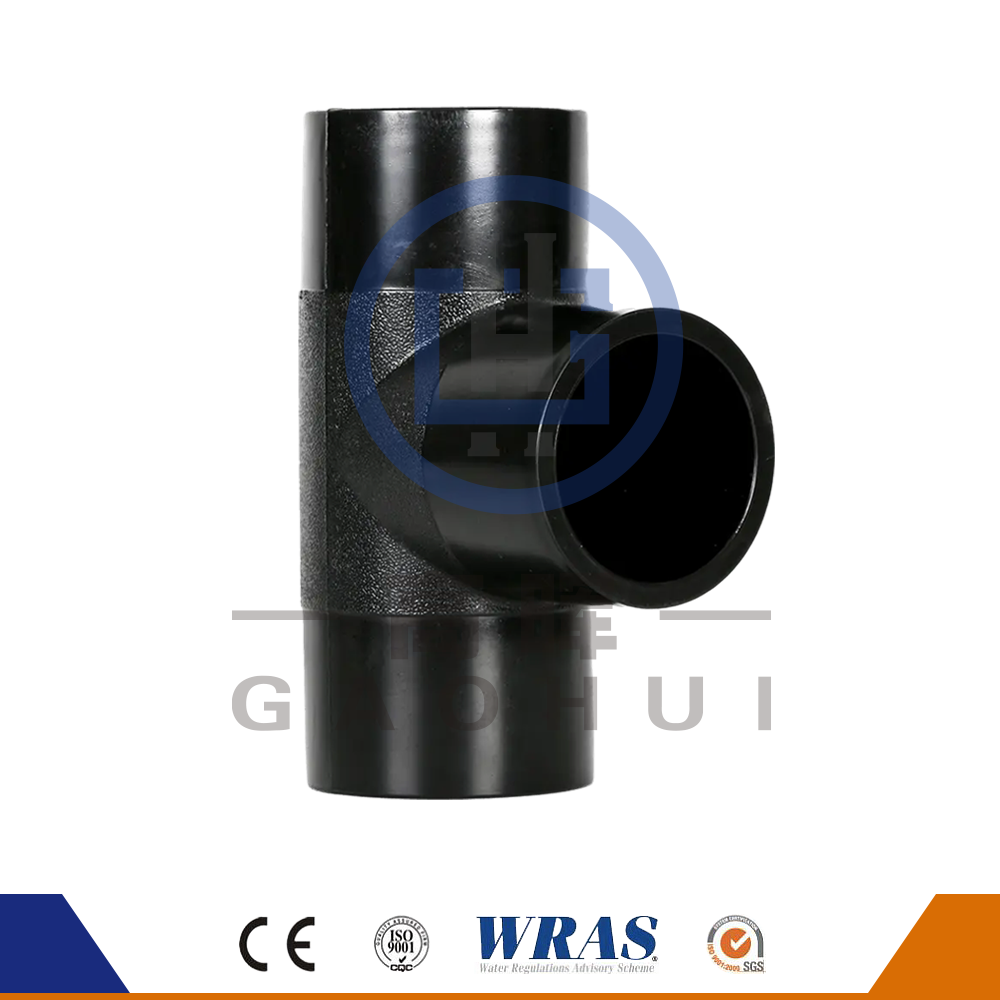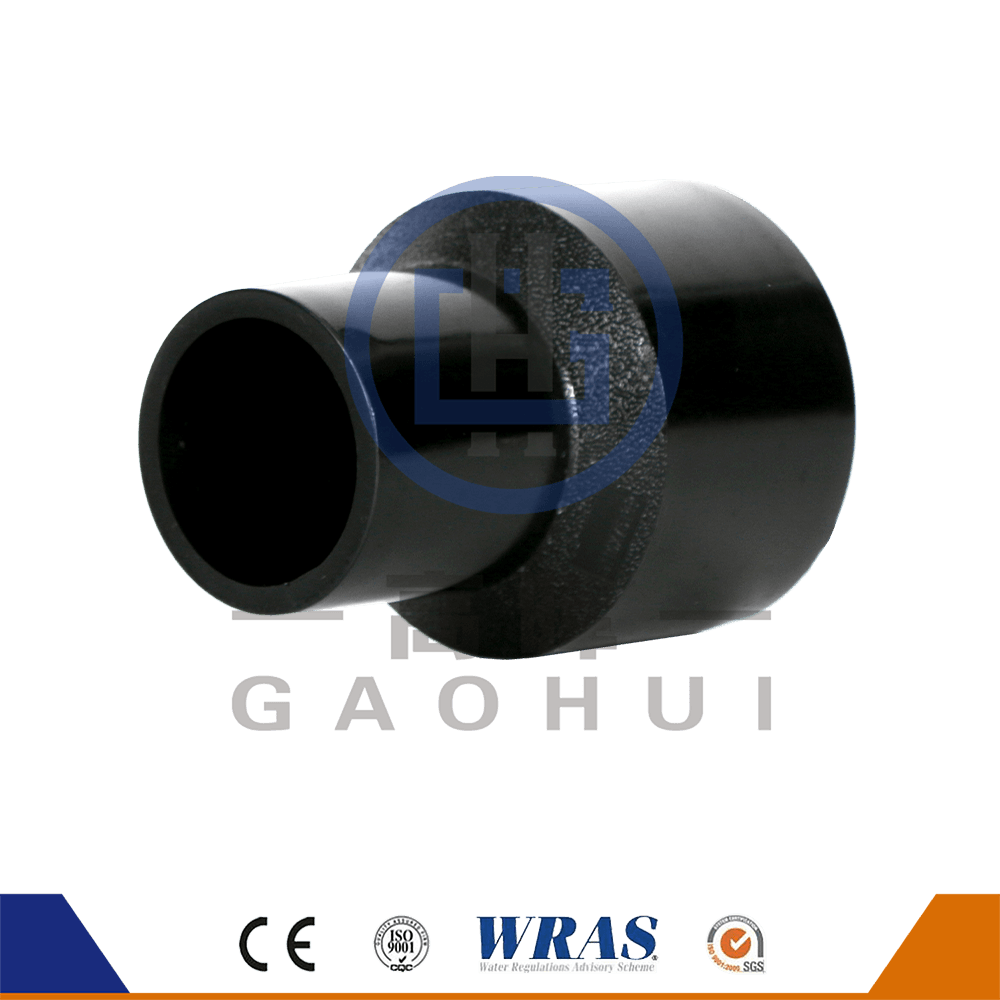In many industrial applications, pipes need to withstand long-term immersion in chemicals such as acids, alkalis, and salts. Traditional metal pipes, concrete pipes, and some plastic pipes are often unable to effectively resist the erosion of these highly corrosive substances, and are prone to cracks, corrosion, and even leakage after long-term use. Especially in industries such as chemical transportation and sewage treatment, the corrosive environment they face is particularly severe.
Corrugated HDPE pipes have excellent resistance to chemical corrosion and have excellent resistance to most chemicals. For acidic and alkaline solutions, or salt-containing or other corrosive substances, HDPE pipes can effectively prevent corrosion and ensure long-term stable operation of pipes in these environments. This makes Gaohui Machinery's corrugated HDPE pipes an ideal choice for many industries such as petrochemicals and chemical transportation. Many chemical companies need pipelines to transport various highly corrosive chemicals during the production process. If non-corrosion-resistant pipes are used, it is very easy to cause corrosion on the surface of the pipes, and even leakage accidents. The corrugated HDPE pipes produced by Gaohui Machinery can ensure safety during transportation due to their excellent chemical stability, greatly reducing the risk of accidents.
In urban infrastructure construction, pipelines usually need to be buried underground, which involves the problem of soil corrosion. Factors such as moisture, pH, and microorganisms in the soil can cause corrosion to underground pipelines, especially traditional metal pipelines, which are prone to rust and corrosion, leading to pipeline leakage or breakage.
The HDPE material of the corrugated HDPE pipe itself has strong resistance to soil corrosion and can resist erosion from chemicals and microorganisms in the soil. Because HDPE has good flexibility, even if the soil settles or changes, the pipeline can remain intact and is not prone to cracks or breakage. Even in areas with high humidity, corrugated HDPE pipes can be used stably for a long time, avoiding the corrosion problems faced by traditional metal pipelines in underground burial. In some humid areas, traditional pipelines often need to be replaced frequently due to erosion by acidic substances and moisture in the soil, and the maintenance cost is extremely high. Gaohui Machinery's corrugated HDPE pipe can effectively avoid this problem and ensure the long-term and stable operation of the pipeline system.
The pipeline system in coastal areas faces serious corrosion problems from seawater and salt spray. The salt in seawater and the salt spray in the air will put great pressure on metal pipelines, causing corrosion and rust in the pipelines in a short period of time, and even the risk of pipeline rupture and leakage. Traditional metal pipes often cannot function effectively in such environments, and the maintenance cost is high.
The advantage of corrugated HDPE pipes is their high corrosion resistance to seawater and salt spray. HDPE materials themselves are not easy to react with salt, so they can withstand the erosion of seawater and salt spray for a long time. Especially in industries such as offshore oil and gas extraction, drainage systems in coastal cities, and ship cleaning in ports, corrugated HDPE pipes perform particularly well. Even at the seaside or in a humid environment, corrugated HDPE pipes can maintain their strength and stability for a long time, effectively avoiding pipeline damage and leakage caused by corrosion.
In some special pipeline systems, microbial corrosion is also a problem worthy of attention. For example, in sewage treatment systems and agricultural irrigation systems, pipelines are exposed to humid and nutrient-rich environments for a long time and are susceptible to erosion by microorganisms, fungi, bacteria, etc. Microbial corrosion can destroy the structure of the pipeline and may also cause sewage and other substances to leak and pollute the environment.
Corrugated HDPE pipes can effectively resist microbial erosion due to their smooth inner wall and corrosion resistance. HDPE materials do not provide conditions for the growth of microorganisms, avoiding the corrosion problem of traditional pipeline materials in such environments. Therefore, in the fields of sewage treatment plants, wastewater discharge, agricultural irrigation, etc., the use of corrugated HDPE pipes produced by Gaohui Machinery can greatly reduce the maintenance cost of pipelines and ensure the long-term stable operation of the system.
Some industrial pipeline systems may need to operate at extreme temperatures. In cold areas, traditional pipelines are prone to rupture or performance degradation due to drastic temperature changes. Corrugated HDPE pipes have excellent low-temperature toughness and anti-freeze properties. Even in severe cold environments, HDPE pipes can maintain good flexibility and strength to avoid damage to pipelines due to brittle cracks.
On the contrary, traditional metal pipes tend to become brittle in low-temperature environments and are easily affected by external force impacts. Corrugated HDPE pipes can flexibly adapt to various temperature changes to ensure the normal operation of the pipeline system in low-temperature environments. In high-temperature environments, HDPE pipes also perform well, can withstand high operating temperatures, and ensure the stability of the pipeline.


 English
English русский
русский عربى
عربى











